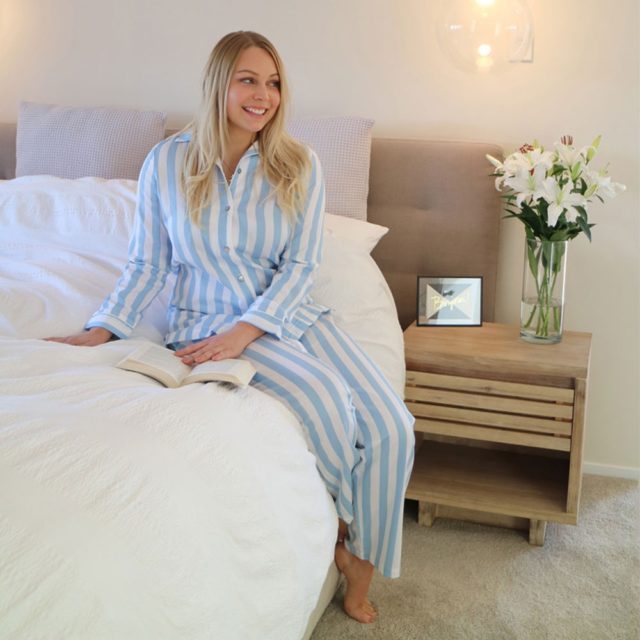Insomnia is a common sleep problem that many people face nowadays. Common symptoms include trouble falling asleep, trouble staying asleep, or both. Chronic or long-term insomnia can affect a person’s ability to do daily tasks like going to school, working, taking care of the family, or caring for themselves. That is because poor sleep can have negative effects on different parts of the body and brain, including memory, learning, emotions, mood, and various biological functions. Women, especially older women, tend to suffer more from insomnia than men.
 Determining the cause of your insomnia can be challenging because there is a number of factors that can contribute to your inability to get a good night’s sleep. Medical conditions, personality factors, mental health, and your day-to-day lifestyle habits can all contribute to your likelihood of developing insomnia. In order to address this issue, a lot of people turn to prescription pills, but this isn’t always the best solution. In fact, some sleep medications can make the problem even worse. And even if they help you sleep through the night, that sleep is not necessarily deep or restful. Instead of taking pills for your sleeping problem, you can do some other things to make sure you get your much-needed dose of z’s every night.
Determining the cause of your insomnia can be challenging because there is a number of factors that can contribute to your inability to get a good night’s sleep. Medical conditions, personality factors, mental health, and your day-to-day lifestyle habits can all contribute to your likelihood of developing insomnia. In order to address this issue, a lot of people turn to prescription pills, but this isn’t always the best solution. In fact, some sleep medications can make the problem even worse. And even if they help you sleep through the night, that sleep is not necessarily deep or restful. Instead of taking pills for your sleeping problem, you can do some other things to make sure you get your much-needed dose of z’s every night.
Improve Your Sleep Environment
Creating a peaceful bedtime routine will help your brain to easier realize when it’s time to wind down and let go of the day’s stresses. Sometimes even small changes in your bedroom and your sleepwear can make a great difference to your quality of sleep.
- Start with making sure your bed is comfortable. It’s very hard to get a restful night of sleep on a mattress that’s too hard or too soft for your body or a bed that’s too small or old. If you tend to wake up with a sore back or an aching neck, it may be a good idea to try different levels of mattress firmness, foam toppers , and pillows that provide better support.
- Pick the right pajamas to get a good night’s sleep. Wearing womens sleepwear that supports a good shut-eye is another important element. The most important factor to keep in mind when shopping for womens sleepwear is the material. For example, if you dislike the slippery sensation of silk, chances are, you won’t sleep good. Being strategic about what your sleepwear is made of can also help regulate your body temperature during the night, which, in turn, can promote better slumber. When choosing your PJs, consider their fit as well. The fit matters a big time as looser pajamas move easier over your body when you sleep and a model that’s too tight for you can make falling asleep harder. Elements like buttons, snaps, and tags on your choice of womens sleepwear can also become an issue if they itch as they can easily irritate your skin and make it harder to fall asleep.
- Keep your room cool and keep the noise down. Research has shown that people sleep best in a slightly cool room (around 18 °C) with proper ventilation. A bedroom that is too hot or too cold can impact your sleep quality. When it comes to noise, if you can’t avoid or eliminate noise from neighbors, traffic or other people in your household, earplugs may help. You can also try masking noise with a sound machine.
Keep a Regular Sleep-Wake Cycle
Keeping a regular sleep-wake cycle will help you feel much more refreshed and energized rather than sleeping the same number of hours at different times. So, try to go to sleep and get up at the same time every day. This way your body will be able to set up its internal clock and optimize the quality of your sleep. You should also avoid sleeping in, and this includes weekends too. The more your sleep schedule differs, the worse the jetlag-like symptoms you will experience. If you need to catch up on your sleep, opt for a daytime nap rather than sleeping in. However, keep in mind that although daytime naps are a great way to make up for lost sleep, practicing them regularly can make things worse. Limit your naps from 15 to 20 minutes in the early afternoon to prevent having problems falling asleep at night.
Try to Relax Before Bedtime
Residual stress, worry, and anger from your day can all negatively impact your ability to sleep at night. Taking the needed steps to manage your overall stress levels can make it easier to unwind at night. Practicing a relaxation technique , taking a warm bath, or dimming the lights and listening to soft music or an audiobook are all good relaxing bedtime rituals to help you prepare your mind for sleep.

Watch What You Eat and Drink
Your eating habits play an important role in the quality of your sleep, especially in the hours before bedtime. Did you know that caffeine can cause sleep problems up to twelve hours after drinking it? Smoking is another stimulant that can disrupt your sleep, especially if you smoke before bedtime. It is also recommended to avoid some types of food at night. For example, acid or spicy foods can cause stomach problems and heartburn, preventing you from falling asleep with ease.























